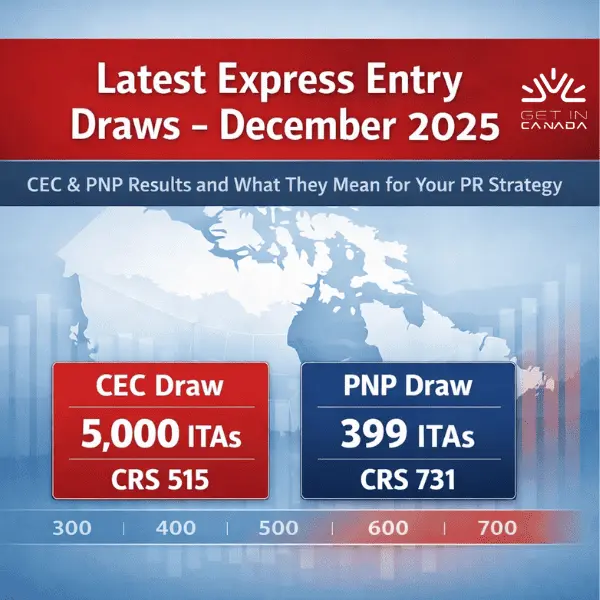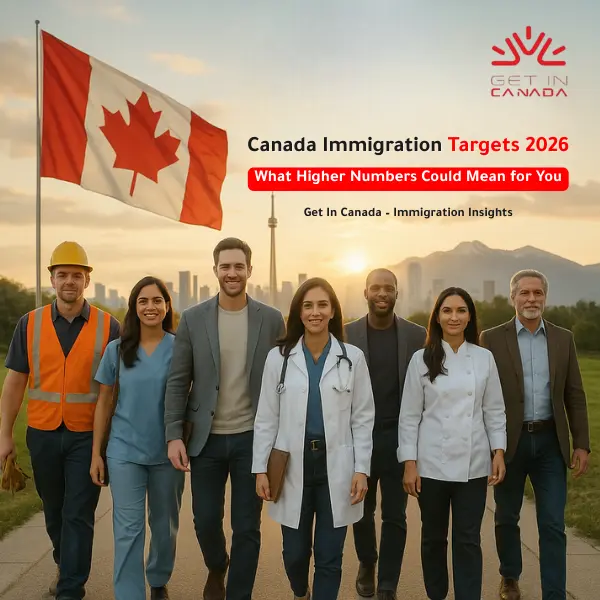Life in Canada: A Comprehensive Guide for 2025

Canada remains a top destination for immigrants, students, entrepreneurs, and travelers worldwide. Known for its inclusive society, robust economy, and breathtaking landscapes, Canada offers a wealth of opportunities. This guide provides an in-depth look at various aspects of life in Canada, including immigration pathways, work and study options, settlement tips, business opportunities, and travel highlights.
Express Entry
In 2025, Canada’s Express Entry system has undergone significant changes to enhance fairness and reduce fraud. Notably, candidates will no longer receive additional points for having a job offer, a move aimed at curbing the misuse of Labour Market Impact Assessments (LMIAs) . This change levels the playing field, emphasizing skills, education, and language proficiency over job offers.
Additionally, category-based draws continue to prioritize candidates with Canadian work experience, particularly in sectors facing labour shortages such as healthcare, trades, and education.
Provincial Nominee Programs (PNPs)
The Provincial Nominee Program (PNP) remains a cornerstone of Canada’s immigration strategy, allowing provinces to nominate candidates who meet specific regional labor market needs. However, in 2025, the federal government has reduced PNP admissions to 55,000, down from the previously planned 120,000 . This reduction may impact provinces that heavily rely on PNPs to address labor shortages, prompting them to seek innovative solutions within the revised quotas.
International Experience Canada (IEC)
The 2025 IEC season is open, inviting youth from partner countries to gain Canadian work experience. Processing times average around five weeks, offering a valuable opportunity for cultural exchange and professional development.
Economic Mobility Pathways Pilot (EMPP)
The EMPP facilitates the immigration of skilled refugees and displaced individuals through economic programs, providing Canadian employers access to a new pool of qualified candidates. In 2025, Ontario’s Immigrant Nominee Program issued targeted invitations to EMPP candidates under the Employer Job Offer: Foreign Worker stream, highlighting the program’s growing integration into provincial immigration strategies .
New Immigration Pathways
Canada is introducing several new immigration pathways in 2025 to address specific labour market needs:
- Enhanced Caregiver Pilot Programs: These programs grant permanent residency upon arrival to home care workers, including child care providers and home support workers. Eligibility criteria include a minimum language proficiency of CLB 4, relevant work experience, and a full-time job offer.
- Rural Community Immigration Pilot: Aimed at addressing labor shortages in small rural communities, this pilot provides a pathway to permanent residency for newcomers willing to live and work in these areas.
- Francophone Community Immigration Pilot: Targeting French-speaking individuals, this pilot focuses on fulfilling labor shortages in select small communities outside Quebec.
- Manitoba’s West Central Immigration Initiative: This three-year pilot partners with rural municipalities and First Nations to support employers in addressing labor market and succession planning needs.
Find out if you are eligible to get in Canada →
Study Permits
Canada has implemented significant reforms to its study permit program for the 2025-2026 academic year:
- Intake Cap: A 12% allocation of available spaces is reserved for master’s and doctoral students.
- Provincial Attestation Letters (PALs): Introduced to ensure that students meet regional standards and needs, PALs are now required for most post-secondary study permit applicants.
- Cost of Living Requirement: As of January 1, 2024, the requirement for a single applicant increased from $10,000 to $20,635, in addition to covering the first year of tuition and travel costs.
Post-Graduation Work Permit (PGWP)
Starting November 1, 2024, new eligibility requirements for the PGWP program have been implemented:
- Language Proficiency: University graduates must demonstrate a CLB level of 7, while college graduates require a CLB level of 5.
- Field of Study: College and certain shorter university program graduates must have studied in fields linked to occupations with long-term shortages, including healthcare, STEM, trades, transport, and agriculture and agri-food.
- Duration: Master’s degree program graduates are now eligible for three-year work permits, regardless of program length.
Labour Market Impact Assessment (LMIA)
Employers seeking to hire temporary foreign workers must obtain an LMIA to demonstrate the need for a foreign worker and that no Canadian worker is available for the job. This process ensures that the employment of foreign workers does not negatively impact the Canadian labour market.
International Experience Canada (IEC)
As mentioned, the IEC program offers youth the chance to work and travel in Canada, with current processing times averaging five weeks.
Find out if you are eligible to get in Canada →
Housing & Accommodation
Newcomers can find housing through various options, including rentals, home purchases, and community housing for those with low incomes. Government-subsidised housing may be available, but waiting lists can be long. It’s advisable to research housing options in your desired location and consider temporary accommodations upon arrival.
Healthcare Access
Canada’s universal healthcare system requires residents to apply for a health card from their province or territory. There may be a waiting period before coverage begins, so newcomers should plan accordingly and consider obtaining private health insurance to cover interim periods.
Banking & Financial Services
Major Canadian banks offer newcomer packages with benefits like no-fee accounts and credit card options. For example, Scotiabank’s StartRight™ Program provides up to $700 in benefits for newcomers. It’s important to compare offerings from different banks to find the best fit for your financial needs.
Cultural Integration Tips
Embracing Canadian culture involves understanding social norms, participating in community events, and possibly learning French, especially in Quebec. Resources are available to help newcomers adapt smoothly, including language classes, cultural orientation programs, and community organizations.
Everyday Life
Life in Canada offers safety, diversity, and opportunities. However, newcomers should be prepared for challenges like adapting to the climate and finding employment. Support services are available to assist with the transition, and engaging with local communities can ease the adaptation process.
Find out if you are eligible to get in Canada →
Start-up Visa Program
Entrepreneurs with innovative business ideas can apply for the Start-up Visa Program. Applicants must secure a letter of support from a designated organization and meet language and settlement fund requirements. This program aims to attract entrepreneurs who can create jobs and compete on a global scale.
Investor Programs
While federal investor programs have been closed, some provinces offer business immigration streams for individuals willing to invest and actively manage businesses in Canada. These programs vary by province and often require a significant investment and a detailed business plan.
Intra-Company Transfers
The Intra-Company Transfer (ICT) program allows multinational companies to transfer key employees to Canadian branches. Recent policy updates have introduced more restrictive requirements:
- Multinational Corporation Requirement: The ICT program is now limited to multinational corporations with revenue-generating operations in at least two countries outside Canada.
- Physical Commercial Premises: Transferred workers must be based in a physical, commercial office conducting business operations. Remote or home-based offices are not eligible.
- Prevailing Wage Requirement: Managerial transferees must be compensated at the median wage for their respective National Occupation Classification (NOC) code, typically between $85,000 and $150,000 CAD .
Must-Visit Destinations
Canada’s vast geography offers something for every type of traveler:
- Western Canada: Banff and Jasper in Alberta for mountains and lakes, Whistler in British Columbia for world-class skiing, and Vancouver for city-meets-nature experiences.
- Central Canada: Toronto for multicultural urban life, Niagara Falls for iconic views, and Muskoka for summer cottage escapes.
- Eastern Canada: Quebec City and Montreal offer European charm, while Nova Scotia, PEI, and Cape Breton highlight coastal beauty.
- Northern Canada: The Yukon and Northwest Territories offer the Northern Lights and untouched wilderness for true adventurers.
Travel Tips for Newcomers
- Transportation: Urban transit is reliable in cities like Toronto, Montreal, and Vancouver, but rural areas require a car. Consider getting a Canadian driver’s license.
- Weather Awareness: Canadian winters are long and cold; dress in layers, and plan ahead for snow-related travel delays.
- Documentation: Always carry ID, and if you’re on a visa, keep proof of status handy during domestic travel.
- Parks Canada Pass: Consider purchasing a Discovery Pass for year-round access to over 80 national parks and historic sites.
Find out if you are eligible to get in Canada →
Seasonal Travel Guides
Each season brings unique opportunities to experience Canadian life:
- Winter (Dec–Mar): Skiing in the Rockies, snow festivals like Winterlude (Ottawa), and ice skating on frozen canals.
- Spring (Apr–May): See cherry blossoms in Vancouver, attend the Tulip Festival in Ottawa, and enjoy warming weather.
- Summer (Jun–Aug): Hit the beaches, hike scenic trails, join Canada Day celebrations, and explore music and food festivals.
- Fall (Sept–Nov): Famous for breathtaking autumn foliage, especially in Ontario and Quebec—top spots include Algonquin Park and Mont Tremblant.
Living in Canada in 2025 is an exciting, life-changing experience—but it’s not automatic. From complex immigration processes to cultural adjustment and climate differences, success depends on preparation, adaptability, and support. The good news? Canada is designed to help you succeed, whether you’re building a career, raising a family, or exploring new paths.











